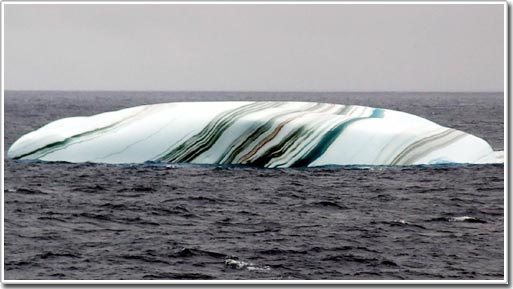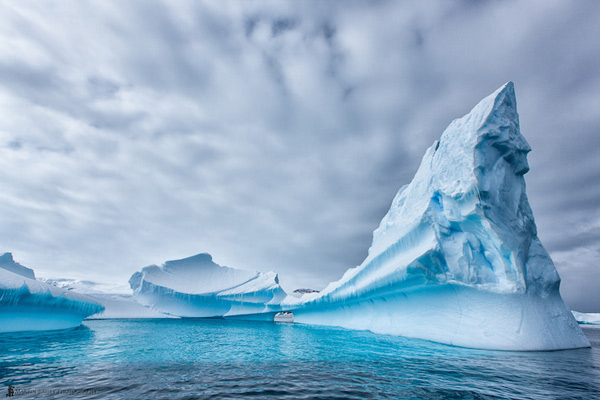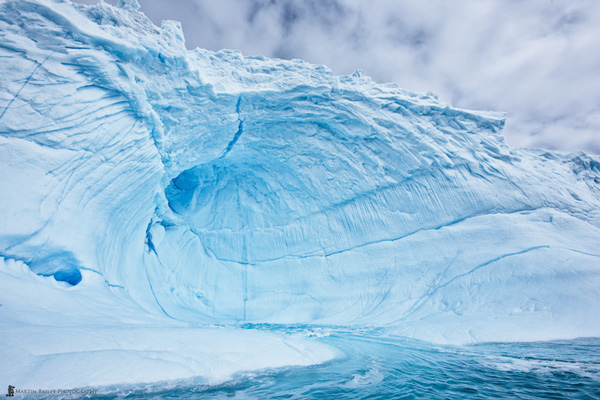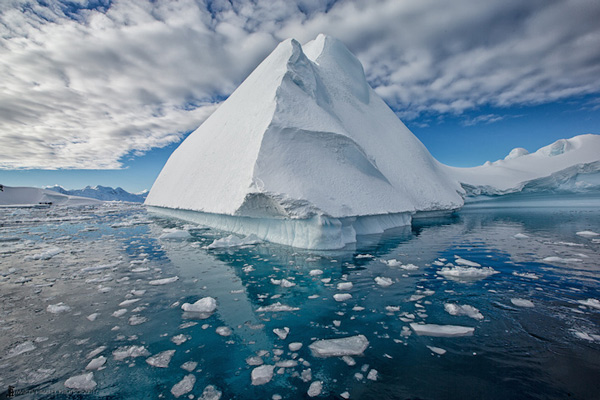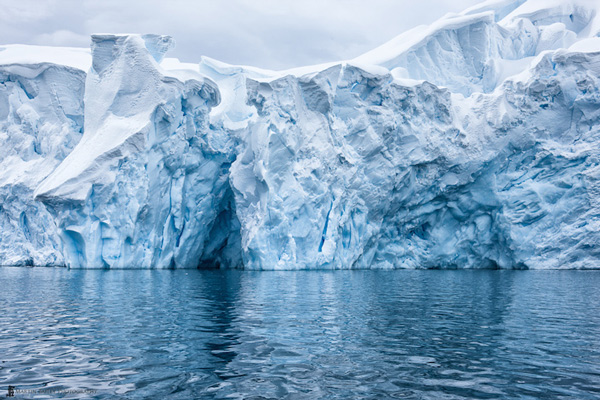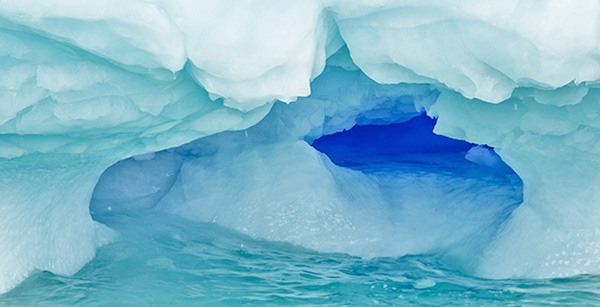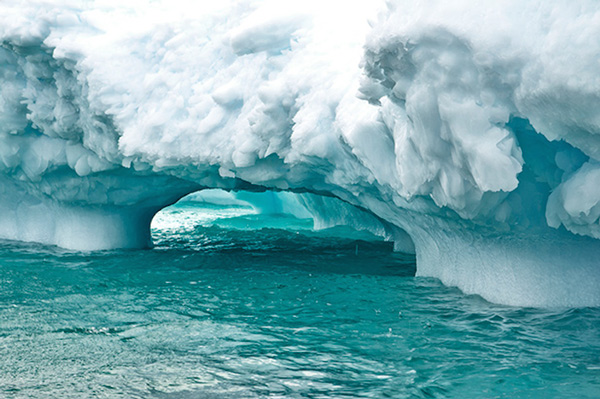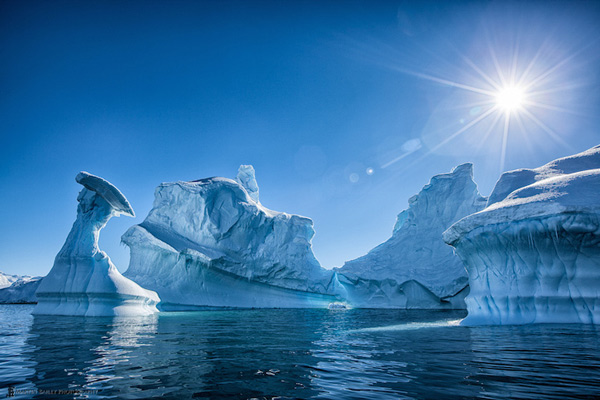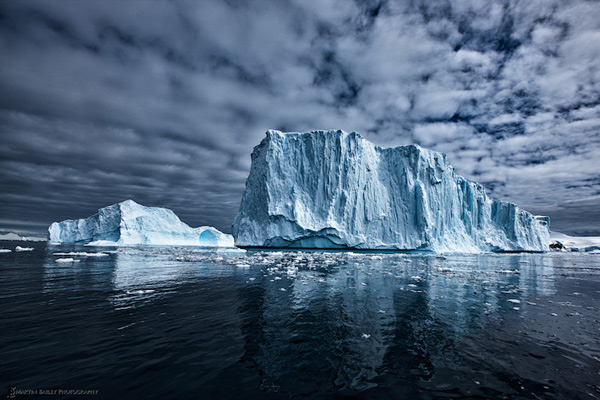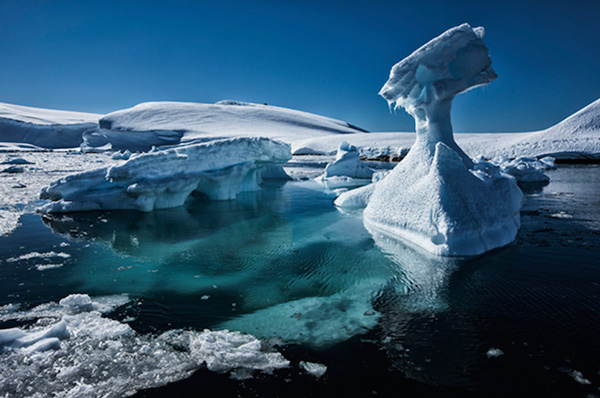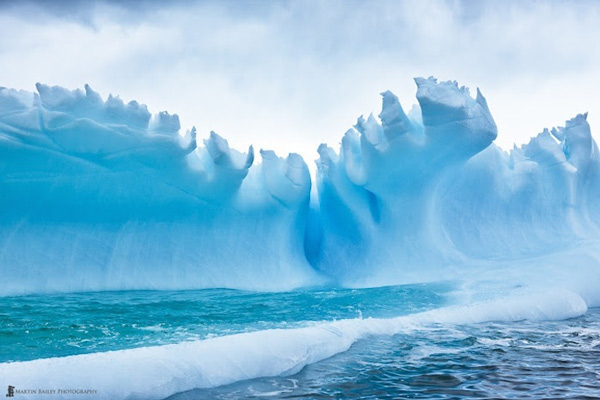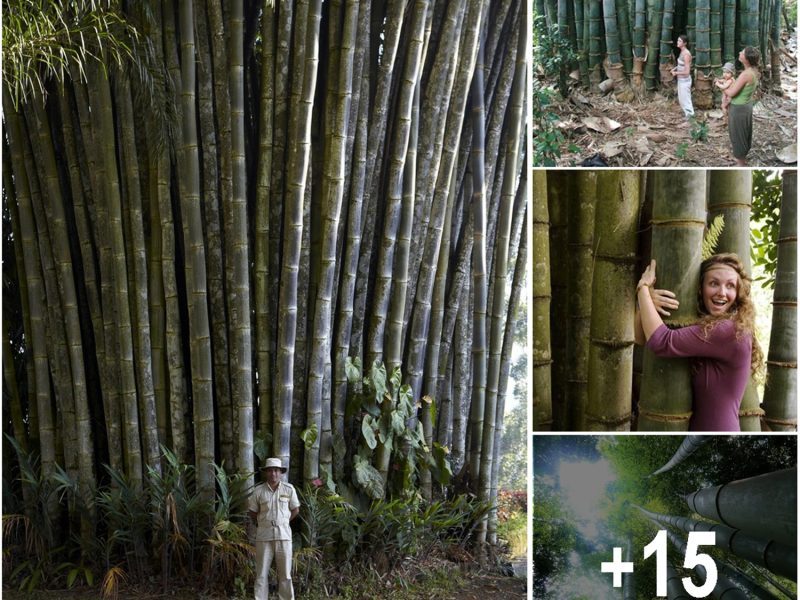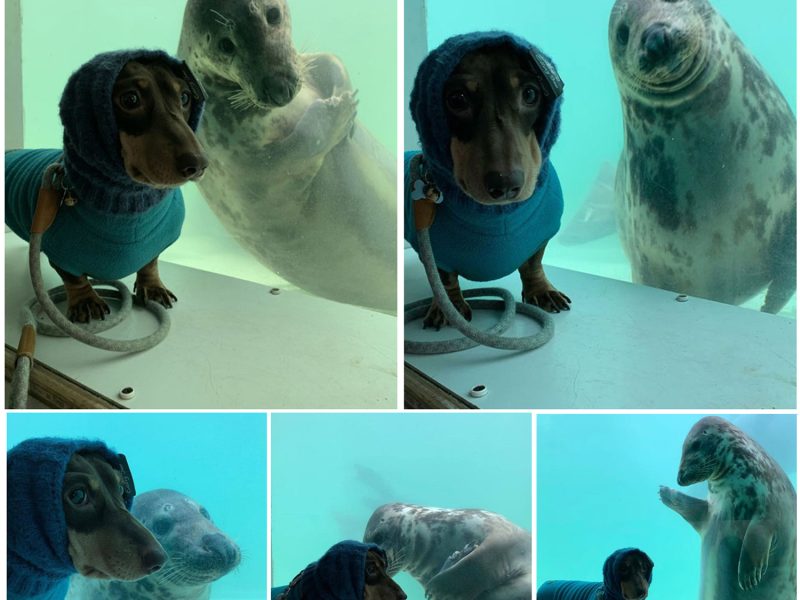A large block of ice looks like a giant peppermint candy with beautiful blue, green, and brown stripes. Another block looks like it was pierced by a spear.
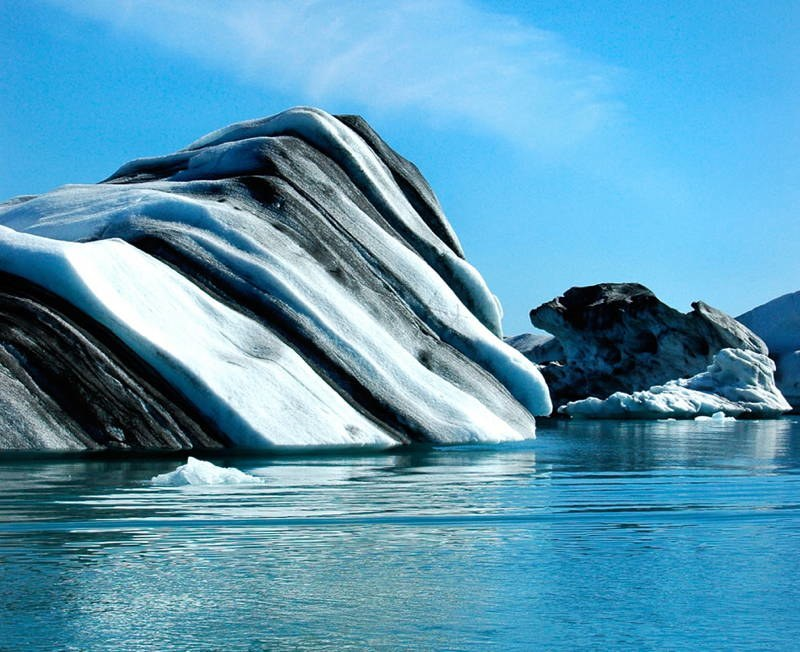
The stunning beauty of the drifting ice blocks in Antarctica These impressive ice blocks, formed thousands of years ago, are drifting in the Antarctic region. Some of the stripes are created as layers of ice melt and refreeze. Others are formed by dirt and dust sticking to the ice as it slides down a slope.
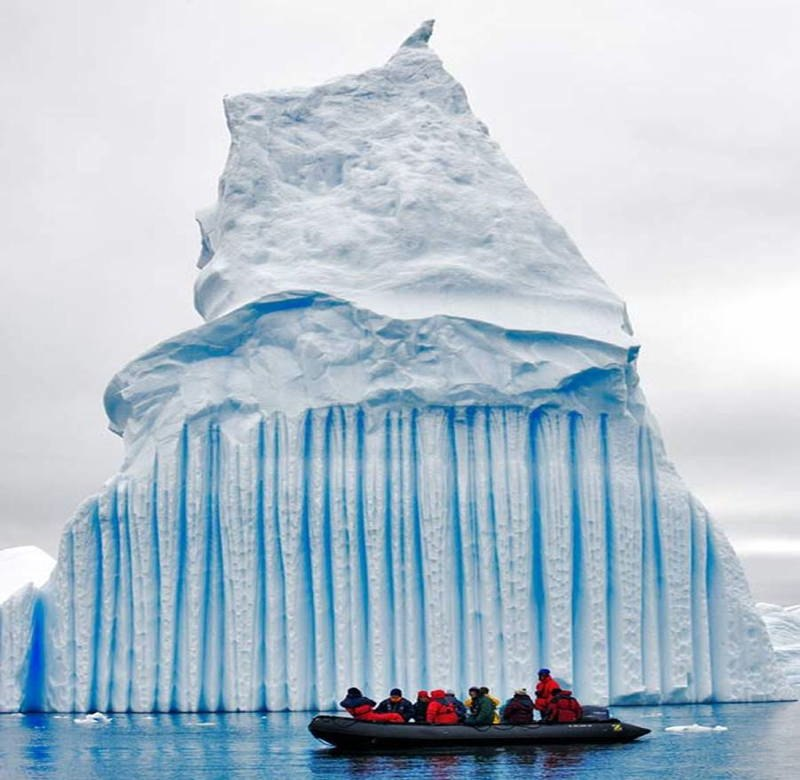
Most of the ice blocks in Antarctica are formed when snow falls on the continent. Over time, the snow compacts into ice and slides out to sea. It will either break apart and melt into water or form into these ice blocks.
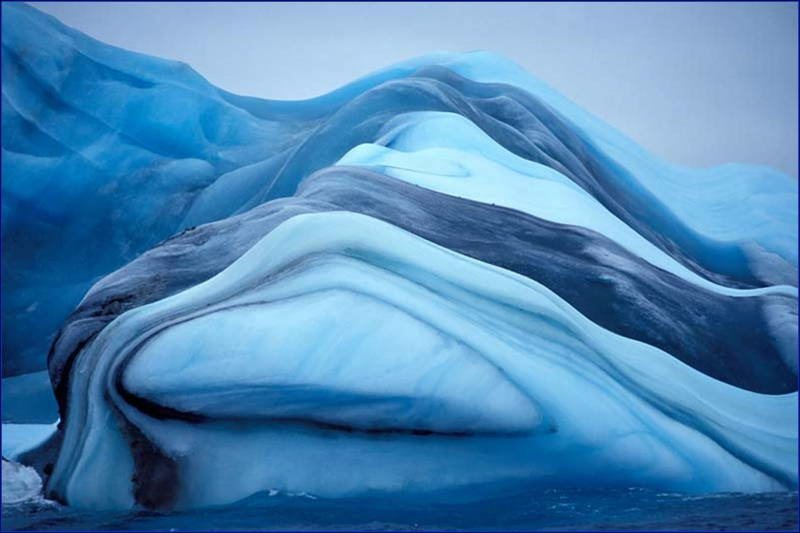
Ice is usually white due to tiny bubbles trapped inside that reflect light in all directions. However, if these bubbles are squeezed out or a portion of the ice block melts and refreezes, it will turn blue.
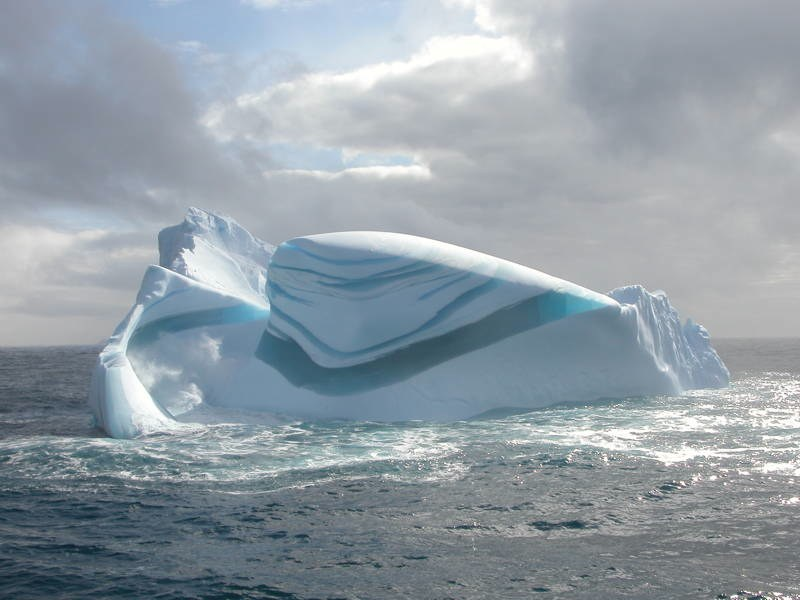
When an ice block slides out to sea, a layer of saltwater will freeze underneath it. If this water has a lot of algae, it will create green stripes. Brown, black, and yellow stripes are formed by sediment deposited on the bottom as the ice slides down the slope. Typically, only about 1/10 of an ice block is above the waterline. The largest iceberg known is 168 meters tall above sea level – equivalent to a 55-story building.
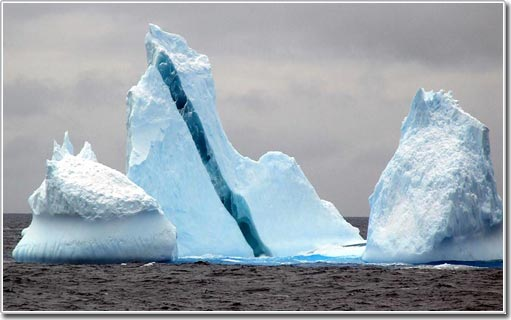
Photographer Martin Bailey – specializing in nature and wildlife photography in Tokyo – has captured stunning images of Antarctica in this impressive photo series.
